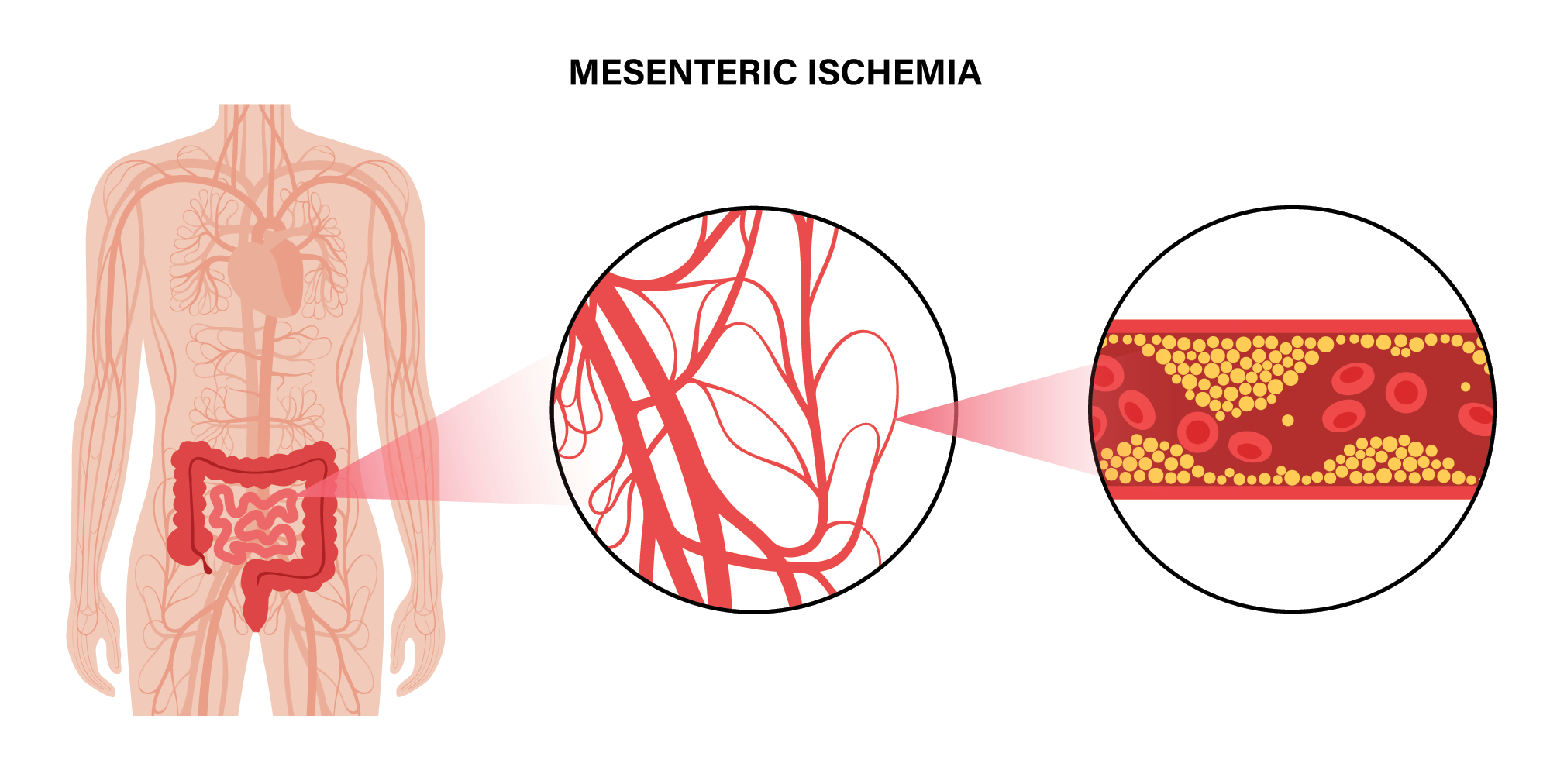What is Mesenteric Ischemia?

Symptoms of Mesenteric Ischemia
Symptoms may vary depending on whether the condition is acute or chronic:
Acute Mesenteric Ischemia
Sudden, severe abdominal pain (often out of proportion to physical findings)
Nausea and vomiting
Diarrhea or urgent need to defecate
Bloody stools
Fever and low blood pressure (in advanced stages)
Chronic Mesenteric Ischemia
Recurrent post-meal abdominal pain (intestinal angina)
Unintended weight loss
Diarrhea or constipation
Abdominal bloating
Early diagnosis and treatment are crucial to prevent permanent damage to the intestines.
Surgical Procedure & Treatment Options
Treatment of mesenteric ischemia depends on the severity, type (acute or chronic), and underlying cause (embolism, thrombosis, or atherosclerosis). Surgical options include:
1. Emergency Surgery (for Acute Ischemia)
Bowel Resection: Removal of the dead or damaged portion of the intestine.
Embolectomy/Thrombectomy: Removal of the blood clot blocking the mesenteric artery.
Bypass Surgery: Creating a new route for blood flow using a graft from another blood vessel.
Endarterectomy: Removal of plaque buildup from the artery walls.
2. Elective Surgery or Angioplasty (for Chronic Ischemia)
Angioplasty with or without stenting: A minimally invasive procedure where a balloon is used to widen narrowed arteries, and a stent is placed to keep it open.
Bypass Surgery: Recommended when angioplasty is not feasible or fails.
Types of Mesenteric Ischemia
- Acute Mesenteric Arterial Embolism – Caused by a blood clot traveling to the mesenteric artery.
- Acute Mesenteric Arterial Thrombosis – Clot forms in a narrowed artery due to atherosclerosis.
- Non-Occlusive Mesenteric Ischemia – Caused by reduced blood flow due to low blood pressure or heart failure.
- Mesenteric Venous Thrombosis – Blood clot forms in the veins draining the intestines.
- Chronic Mesenteric Ischemia – Gradual narrowing due to atherosclerosis affecting more than one artery.
Prevention of Mesenteric Ischemia
While some cases may not be preventable, especially those caused by sudden embolism, certain steps can reduce the risk:
- Control high blood pressure, diabetes, and cholesterol
- Stop smoking
- Maintain a heart-healthy diet and weight
- Manage atrial fibrillation and other heart conditions
- Use blood thinners or antiplatelet medications as prescribed (especially after heart surgery or in high-risk patients)
Benefits of Timely Surgery
- Saves intestinal tissue from necrosis
- Prevents life-threatening infections like sepsis
- Restores proper digestion and nutrient absorption
- Improves quality of life, especially in chronic cases
- Reduces recurrence when combined with medical management
Recovery and Follow-Up Care
Post-surgery, patients may need:
- ICU care for monitoring vital signs and bowel function
- IV fluids and antibiotics
- Gradual reintroduction of oral diet
- Anticoagulant therapy to prevent future clots
- Regular imaging (CT angiography, Doppler) to check blood flow
- Nutritional support in case of bowel resection
Recovery time varies based on the severity of the disease and the type of procedure performed.
